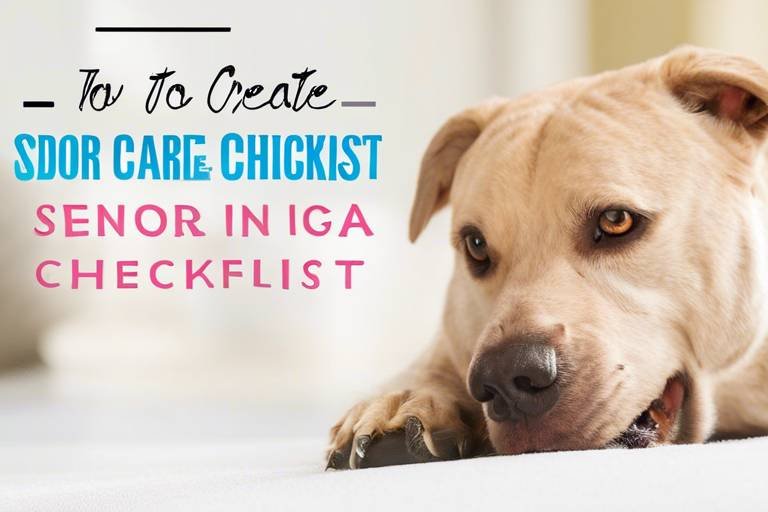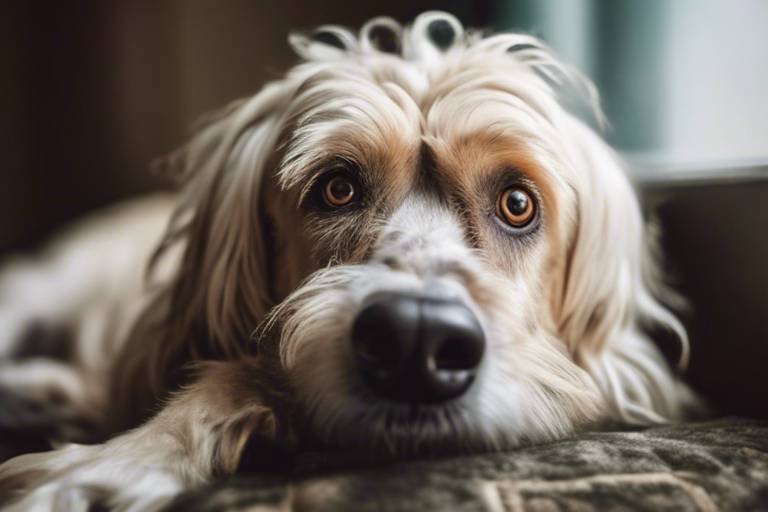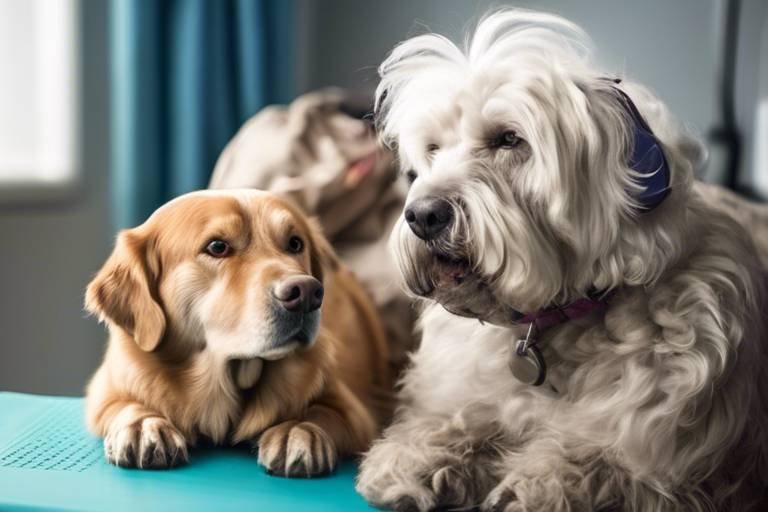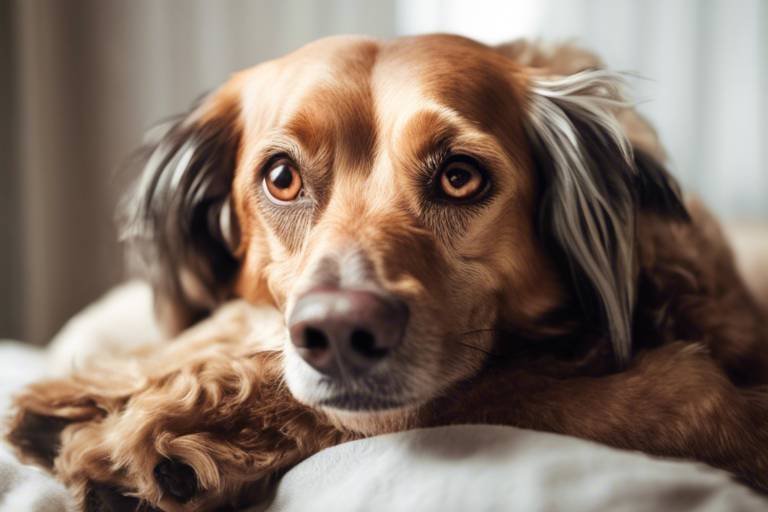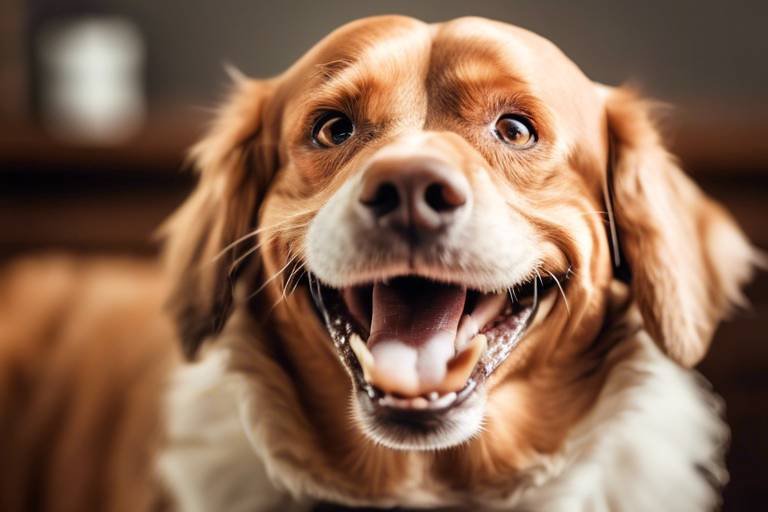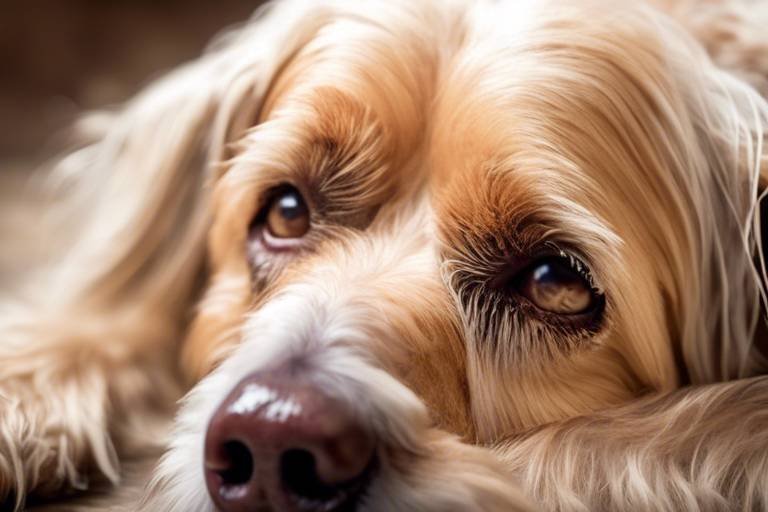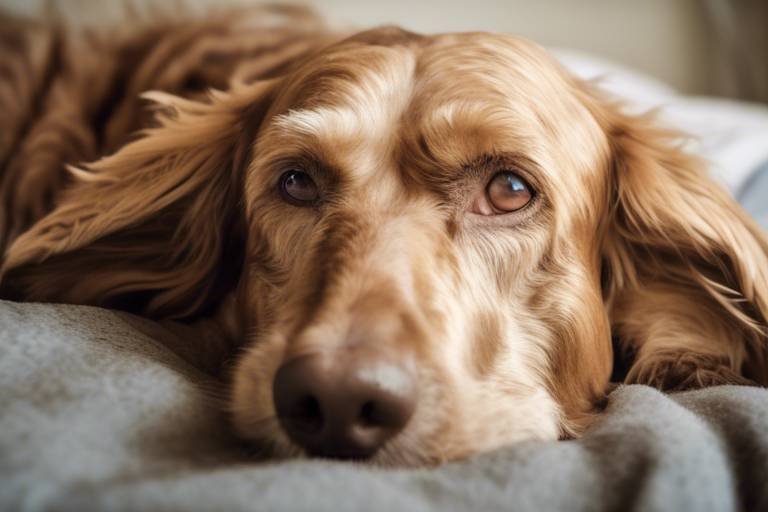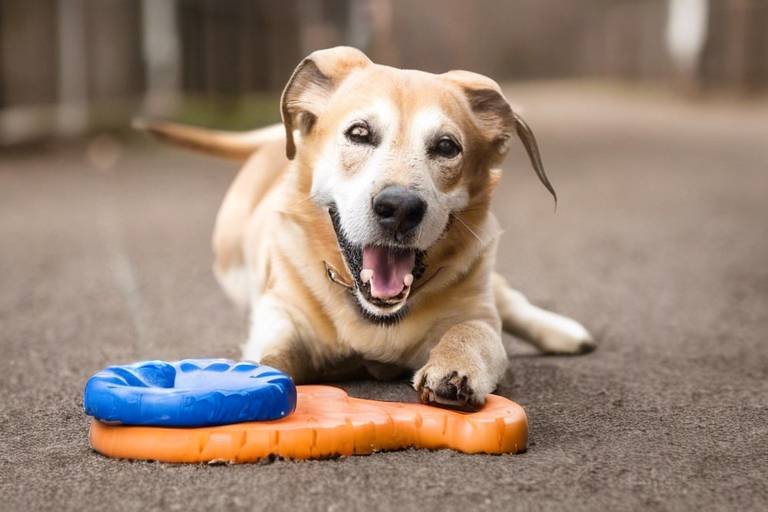Tips for Maintaining Oral Hygiene in Senior Pets
As our furry friends grow older, their needs change, and one of the most critical areas that often gets overlooked is their oral hygiene. Just like humans, senior pets are susceptible to a range of dental issues that can affect their overall health and quality of life. Maintaining optimal oral hygiene can help prevent serious health problems and ensure your pet enjoys their golden years to the fullest. So, how can you make sure your beloved companion has a healthy mouth? Here are some essential tips to help you keep your senior pet's teeth and gums in tip-top shape.
Understanding the importance of oral hygiene for senior pets is the first step in preventing dental diseases and systemic infections. Did you know that poor dental health can lead to bacteria entering the bloodstream, potentially affecting vital organs like the heart and kidneys? This is why it's crucial to prioritize your pet's dental care. Regular brushing and dental check-ups can dramatically reduce the risk of severe health issues. It’s not just about fresh breath; it’s about overall well-being!
Senior pets are particularly prone to dental problems, and being aware of these can help you act swiftly. Common issues include:
- Periodontal Disease: This is the most prevalent dental condition in pets, characterized by inflammation of the gums and surrounding tissues.
- Tooth Decay: Just like humans, pets can suffer from cavities, especially if their diet is high in sugars.
- Gum Infections: These can cause pain and discomfort, leading to further health complications.
Recognizing these problems early can help you manage your pet's health effectively and keep their smiles bright.
Being vigilant about the signs of dental disease is vital for timely intervention. Look out for:
- Bad Breath: If your pet's breath smells like a garbage dump, it’s a sign that something is off.
- Difficulty Eating: If your pet is struggling to chew their food, it could indicate dental pain.
- Swollen Gums: Healthy gums should be pink; if they appear red or swollen, it’s time to see the vet.
Changes in your pet's behavior can also be red flags. For instance, if your once playful pup suddenly becomes lethargic or refuses to eat, it may be due to dental discomfort. Just like us, pets can experience pain that affects their mood and activity levels. Observing these changes closely can help you take action before issues escalate.
Physical symptoms can also signal dental problems. If your senior pet is drooling excessively or pawing at their mouth, these are signs that they might be experiencing discomfort. Don't ignore these signals; they are your pet's way of communicating that something isn't right. Immediate veterinary attention can save your pet from further pain and complications.
Implementing preventive care strategies is key to keeping your senior pet’s teeth healthy. Regular dental check-ups and professional cleanings are essential. A veterinarian can spot issues that may not be visible to the untrained eye and provide treatments to keep your pet's mouth healthy.
Practicing effective home dental care techniques is equally important. Here are two major practices you can adopt:
Brushing your senior pet's teeth regularly is one of the most effective ways to prevent dental issues. It might sound daunting, but with a little patience and the right tools, it can become a routine part of your bonding time. Use a toothbrush designed for pets and a toothpaste formulated specifically for them—never use human toothpaste, as it can be harmful!
Providing dental chews and treats designed to promote oral health can be a fun and effective way to aid in your senior pet's dental care routine. These chews can help reduce plaque and tartar build-up while satisfying your pet's natural urge to chew. Just be sure to choose high-quality products that are safe and beneficial for their teeth.
Scheduling regular veterinary dental check-ups is essential for monitoring your senior pet's oral health. During these visits, your vet will conduct a thorough examination, which may include:
During a veterinary dental check-up, expect a comprehensive examination of your pet's mouth, potential cleaning, and personalized advice on maintaining their oral hygiene at home. This is a great opportunity to ask questions and address any concerns you may have.
Professional dental cleanings performed by veterinarians are crucial for removing tartar and plaque build-up. These cleanings can help prevent serious dental issues that could lead to pain and discomfort for your beloved pet. Remember, a clean mouth is a happy mouth!
Q: How often should I brush my senior pet's teeth?
A: Ideally, you should brush your pet's teeth daily, but even a few times a week can make a significant difference.
Q: Are dental treats effective?
A: Yes! Dental treats can be a great addition to your pet's oral care routine, but they should not replace regular brushing.
Q: What are the signs that my pet needs a dental check-up?
A: Bad breath, difficulty eating, swollen gums, and behavioral changes are all signs that your pet may need a dental check-up.
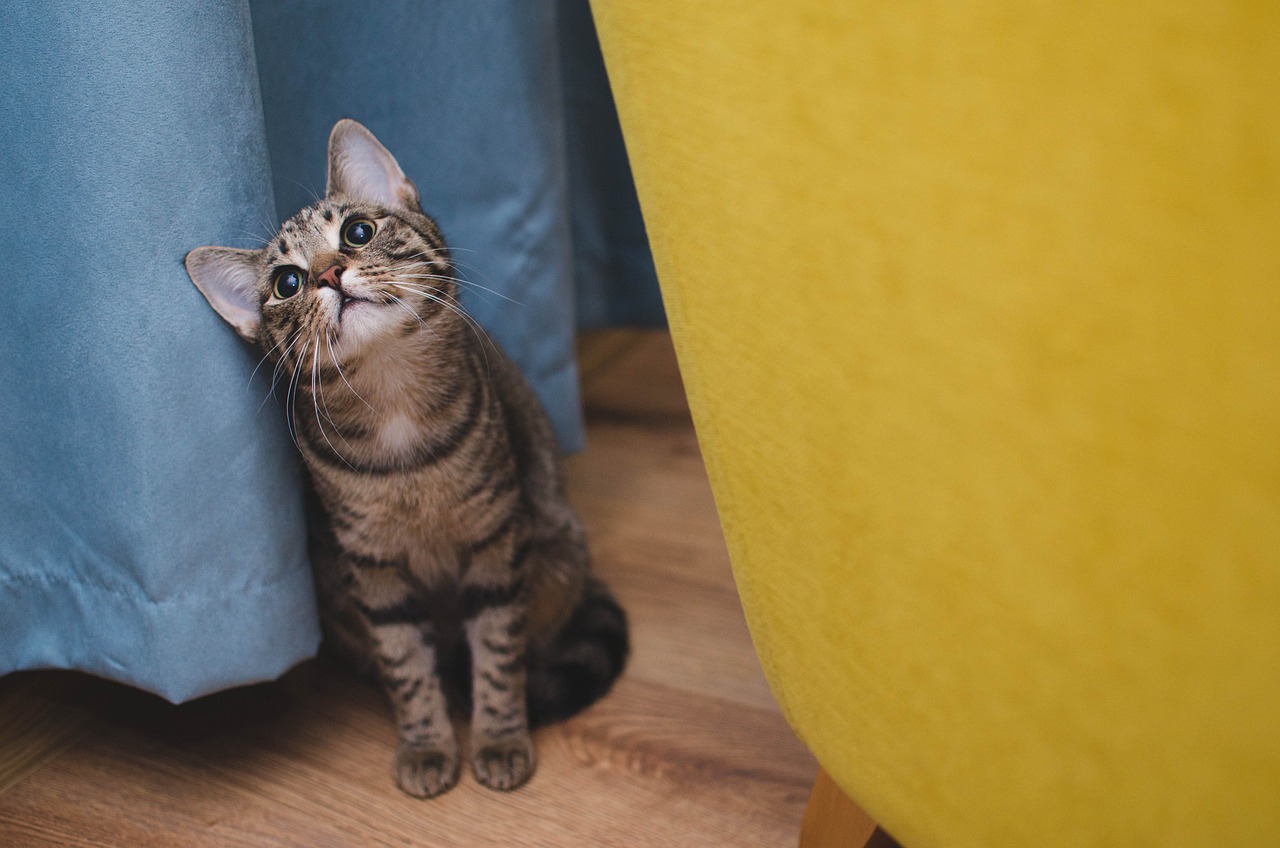
The Importance of Oral Hygiene for Senior Pets
When it comes to our beloved furry friends, especially as they enter their golden years, oral hygiene becomes a crucial aspect of their overall health. Just like humans, pets can suffer from a variety of dental issues that can lead to serious health complications if left unchecked. Imagine your pet's mouth as a bustling city; if the streets (or teeth) aren't maintained, chaos ensues! Poor oral hygiene can pave the way for periodontal disease, tooth loss, and even systemic infections that can affect vital organs such as the heart and kidneys. Therefore, understanding the significance of maintaining your senior pet's oral health is essential for ensuring they live a long, happy life.
As pets age, their bodies go through numerous changes, and their dental health is no exception. The wear and tear on their teeth can lead to an accumulation of plaque and tartar, which, if not addressed, can result in painful conditions. Regular dental care is not merely about keeping their breath fresh; it’s about preventing a myriad of health issues that could arise from neglect. For instance, did you know that over 80% of dogs and cats over the age of three show signs of dental disease? This staggering statistic highlights the importance of being proactive rather than reactive when it comes to your pet's dental care.
Moreover, the connection between oral health and overall well-being cannot be overstated. Research indicates that bacteria from the mouth can enter the bloodstream, potentially leading to infections in the heart, liver, and kidneys. This means that by neglecting your senior pet's dental hygiene, you might be putting their entire body at risk. Think of it as a domino effect; one small issue can trigger a series of larger problems. Therefore, prioritizing oral hygiene is not just a matter of keeping your pet's smile bright; it’s about safeguarding their entire health.
Incorporating routine dental care into your senior pet's life can be simple and rewarding. This might include regular brushing, providing dental chews, and scheduling professional cleanings with your veterinarian. By making oral hygiene a priority, you are investing in your pet's quality of life. So, the next time you cuddle up with your furry companion, remember that a little effort in maintaining their oral health can lead to a lifetime of happiness and comfort!
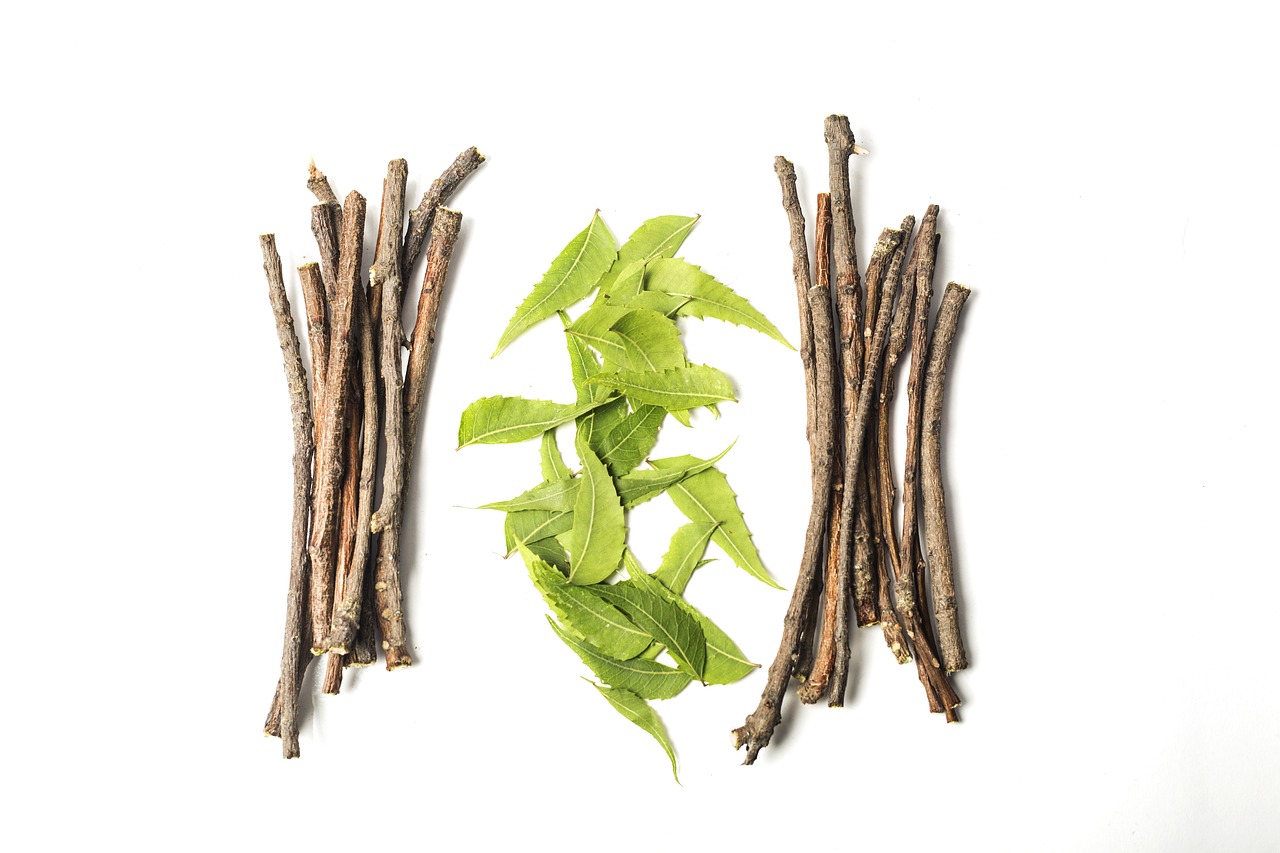
Common Dental Problems in Senior Pets
As our beloved pets age, their bodies undergo various changes, and their dental health is no exception. Senior pets are particularly vulnerable to a range of dental problems that can significantly impact their quality of life. Understanding these common issues is crucial for pet owners who want to ensure their furry companions remain healthy and happy in their golden years.
One of the most prevalent dental problems in senior pets is periodontal disease. This condition begins with the accumulation of plaque and tartar on the teeth, leading to inflammation of the gums. If left untreated, it can progress to more severe issues, including tooth loss and infections that can affect other organs. It's essential to regularly monitor your pet's oral hygiene to catch this problem early.
Another common issue is tooth decay, which can occur due to a combination of factors, including diet, lack of dental care, and age-related changes in the mouth. Tooth decay can cause significant discomfort and pain for your pet, making it difficult for them to eat and enjoy their favorite treats. It's vital to be vigilant and look for signs that your pet may be suffering from this condition.
Additionally, gum infections are a concern for senior pets. These infections can result from bacteria that thrive in the mouth, especially if proper dental care is not maintained. Symptoms may include swelling, redness, and bleeding gums, which can be distressing for your pet. Regular dental check-ups can help in identifying and treating these infections before they escalate.
To summarize, here are the common dental problems that senior pets face:
- Periodontal Disease: Inflammation of the gums due to plaque and tartar buildup.
- Tooth Decay: Damage to the tooth structure leading to pain and difficulty eating.
- Gum Infections: Bacterial infections causing swelling and bleeding in the gums.
Recognizing these dental problems early is key to managing your senior pet's health effectively. Regular veterinary visits, combined with good home dental care practices, can help prevent these issues and ensure that your furry friend enjoys a long and healthy life.
Signs of Dental Disease
As a loving pet owner, it’s crucial to be vigilant about the in your senior furry friends. Just like us, pets can suffer from a range of dental issues that can lead to discomfort and health complications if left unchecked. So, how can you tell if your beloved pet is experiencing dental problems? Here are some common indicators to watch for:
First and foremost, bad breath is often the most noticeable sign. While a bit of doggy breath is normal, an overpowering odor can indicate the presence of bacteria or plaque buildup. If your pet's breath smells like something died, it’s time to take action! Additionally, you might notice your pet struggling to eat or showing a reluctance to chew their favorite treats. This can be due to pain or discomfort in their mouth, making mealtime a challenge.
Another important sign is swollen or bleeding gums. If you observe any redness or inflammation around your pet's gums, it could be a sign of periodontal disease. Keep an eye out for any behavioral changes as well. For example, if your pet becomes less playful or seems to shy away from physical interaction, it may be due to dental pain. Just like how we might avoid smiling if we have a toothache, pets can exhibit similar behavior.
Physical symptoms can also manifest in the form of drooling or pawing at the mouth. If your pet is excessively drooling or seems to be constantly trying to scratch at their mouth, it could mean they're experiencing dental discomfort. In some cases, you might even notice tooth loss, which is a clear indication that dental disease has progressed. Remember, early detection is key! If you notice any of these signs, it’s essential to consult your veterinarian for a thorough examination.
In summary, being aware of these signs can make a world of difference in your senior pet's health. Regularly checking your pet's mouth and observing their eating habits can help you catch potential dental issues before they escalate. After all, a happy pet is a healthy pet, and maintaining their oral hygiene is a vital part of their overall well-being!
- How often should I brush my pet's teeth? It’s recommended to brush your pet's teeth at least two to three times a week, but daily brushing is ideal for optimal oral health.
- What are some safe dental treats for my senior pet? Look for treats specifically designed for dental health, which can help reduce plaque and tartar buildup while being gentle on their teeth.
- When should I schedule a dental check-up for my senior pet? Ideally, you should schedule a dental check-up at least once a year, but consult your veterinarian for personalized recommendations based on your pet's specific needs.
Behavioral Changes
As our beloved pets age, it's not just their bodies that change; their behavior can shift dramatically too. These changes can often be subtle, but they are crucial indicators of their overall health, particularly when it comes to dental discomfort. For instance, have you noticed your furry friend becoming less playful or more withdrawn? This could be their way of communicating that something isn’t right, especially if they are experiencing pain from dental issues.
Another common behavioral change is a reluctance to eat. If your senior pet suddenly turns their nose up at their favorite food, it might not just be a case of picky eating. Instead, it could indicate that chewing is uncomfortable for them, possibly due to gum disease or tooth decay. Imagine trying to enjoy a delicious meal with a toothache—it's no wonder they might shy away from food! Keeping an eye on their eating habits is essential, as a change in appetite can lead to further health complications.
Additionally, if you notice your pet pawing at their mouth or showing signs of distress when you touch their face, these are strong signals that they might be suffering from dental pain. Just like us, pets can experience discomfort that affects their mood and behavior. It's important to observe these behavioral changes closely and consult your veterinarian if they persist. Remember, early intervention can make a world of difference in your pet's quality of life.
In summary, behavioral changes in senior pets can be a telling sign of underlying dental issues. By being vigilant and responsive to these changes, you can help ensure your furry friend remains comfortable and healthy as they age. After all, a happy pet is a healthy pet!
- What are the signs that my senior pet may have dental problems?
Look for signs such as bad breath, difficulty eating, swollen gums, and changes in behavior like reluctance to play or eat. Pawing at the mouth and drooling can also indicate discomfort.
- How often should I brush my senior pet's teeth?
Ideally, you should brush your senior pet's teeth at least a few times a week, if not daily. This helps to prevent plaque build-up and maintain fresh breath.
- Are dental chews effective for maintaining oral hygiene?
Yes! Dental chews can be a fun way to help clean your pet's teeth and promote oral health. Just make sure to choose products that are specifically designed for dental care.
- How often should my senior pet have a veterinary dental check-up?
It's recommended that senior pets have dental check-ups at least once a year, or more frequently if they have existing dental issues.
Physical Symptoms
When it comes to our beloved senior pets, being vigilant about their health is crucial, especially regarding their oral hygiene. Physical symptoms can often be the first indicators that something is amiss in your pet's mouth. For instance, excessive drooling can be a telltale sign of dental discomfort. If you notice that your furry friend is drooling more than usual, it might be time to take a closer look at their oral health. This could indicate anything from a simple toothache to more serious dental diseases.
Another common physical symptom to watch for is pawing at the mouth. If your pet is frequently using their paws to scratch or rub their mouth, it may be a sign that they are experiencing pain or irritation. It's as if they're trying to tell you, "Hey, something's bothering me here!" This behavior can often lead to further complications if not addressed promptly.
Additionally, keep an eye out for changes in eating habits. If your senior pet suddenly becomes reluctant to eat or shows signs of discomfort while chewing, it could indicate dental issues. They might be trying to avoid pain, which can lead to a decrease in their overall health and vitality. Remember, pets can be masters at hiding their discomfort, so any changes in their eating habits should be taken seriously.
Lastly, swollen gums are another physical symptom that should never be overlooked. Healthy gums should be pink and firm, but if you notice any redness or swelling, it could be a sign of periodontal disease or infection. This is where a quick visit to the veterinarian can make all the difference, as early intervention can prevent more severe health issues down the line.
In summary, being attentive to these physical symptoms—like drooling, pawing at the mouth, changes in eating habits, and swollen gums—can help you catch dental problems early. By staying proactive and observant, you can ensure that your senior pet receives the care they need to maintain their health and happiness.
- How often should I brush my senior pet's teeth? It's recommended to brush your pet's teeth at least two to three times a week to maintain optimal oral hygiene.
- What should I do if I notice bad breath? Bad breath can be a sign of dental disease. Schedule a veterinary check-up to address any underlying issues.
- Are dental treats effective for oral health? Yes! Dental treats can help reduce plaque and tartar buildup while also providing a tasty reward for your pet.
- How can I make brushing easier for my pet? Start slowly, using a pet-friendly toothpaste and a soft toothbrush. Gradually introduce the process to make it a positive experience.
Preventive Care Strategies
When it comes to ensuring your senior pet has a healthy mouth, prevention is truly the best medicine. Just like we humans visit the dentist regularly to keep our teeth in tip-top shape, our furry friends need that same level of care. So, what can you do to keep your senior pet's oral hygiene at its best? The answer lies in a combination of routine veterinary visits and at-home care strategies.
First and foremost, scheduling regular dental check-ups with your veterinarian is essential. These visits are not just about checking for cavities; they’re crucial for identifying potential issues before they escalate into serious health problems. During these check-ups, your vet will perform a thorough examination of your pet’s teeth and gums, looking for signs of periodontal disease, tooth decay, and other dental ailments that are common in senior pets. It’s a bit like giving your pet a thorough health report card, and who doesn’t want their furry family member to ace it?
In addition to professional check-ups, you should also consider professional dental cleanings. These cleanings are vital for removing tartar and plaque build-up that can lead to serious dental issues. Your vet has the tools and expertise to clean your pet’s teeth more effectively than you can at home. Think of it as a spa day for your pet, but instead of pampering, it’s all about maintaining their health!
Now, let’s talk about what you can do at home. One highly effective strategy is to establish a daily dental care routine. Just as you brush your own teeth every day, make it a habit to brush your pet's teeth regularly. Use a toothbrush and toothpaste specifically designed for pets, as human toothpaste can be harmful to them. Start slow; perhaps let your pet taste the toothpaste first, then gradually introduce the toothbrush. It may take some time, but with patience, your pet will get used to it.
Another great preventive measure is to provide your senior pet with dental chews and treats. These are not only a tasty reward but also serve a purpose by helping to reduce plaque and tartar build-up. Look for products that are specifically designed to promote oral health. It’s a win-win situation where your pet gets to enjoy a treat while you can feel good knowing you’re contributing to their dental hygiene.
Lastly, don’t underestimate the power of diet in maintaining oral health. Some pet foods are formulated to help reduce dental issues. Consult your veterinarian about the best diet for your senior pet that supports both their overall health and their dental hygiene. Just like a well-balanced diet is crucial for humans, it plays an equally important role for our pets.
In summary, maintaining your senior pet’s oral hygiene requires a proactive approach that includes regular veterinary visits, professional cleanings, at-home dental care, and a proper diet. By implementing these preventive care strategies, you can help your furry friend enjoy a healthier, happier life.
- How often should I take my senior pet for dental check-ups? It is recommended to schedule dental check-ups at least once a year, but your veterinarian may suggest more frequent visits based on your pet's specific needs.
- Can I use human toothpaste for my pet? No, human toothpaste can be harmful to pets. Always use toothpaste that is specifically formulated for pets.
- What are the signs that my pet may have dental problems? Look for signs such as bad breath, difficulty eating, swollen gums, drooling, or changes in behavior like reluctance to play.
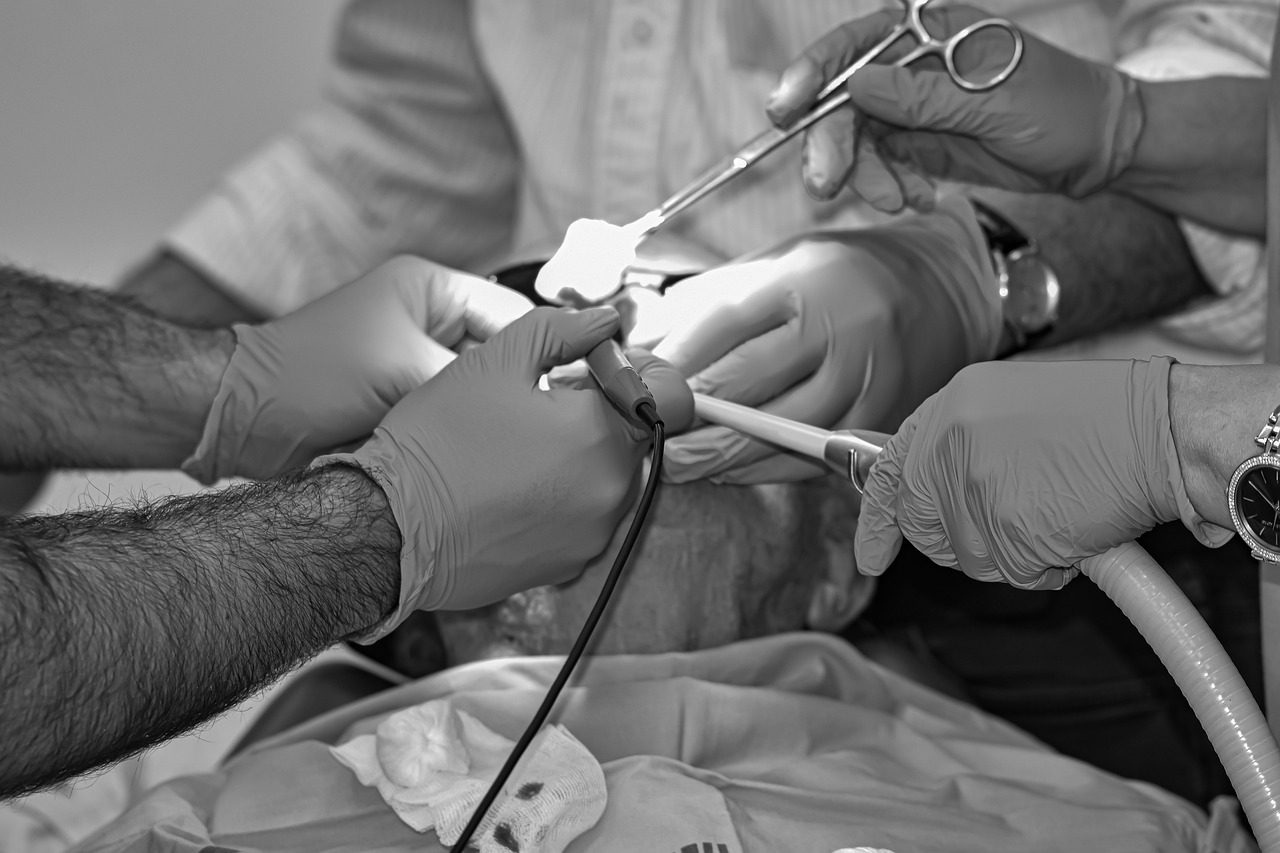
Home Dental Care Techniques
Maintaining optimal oral hygiene for your senior pet is not just about those occasional trips to the vet; it's also about the daily care you provide at home. Think of it like brushing your own teeth—it's a routine that can make all the difference! By incorporating some simple yet effective dental care techniques into your pet's daily life, you can significantly improve their oral health and overall well-being. The good news? You don't need to be a veterinarian to do it! With a little patience and the right tools, you can turn dental care into a bonding experience with your furry friend.
One of the most effective methods of home dental care is brushing your pet's teeth. Yes, you read that right! It might sound daunting at first, but with the right approach, it can become a part of your pet's routine. Start by introducing your pet to the toothbrush and toothpaste gradually. Use a toothpaste specifically designed for pets, as human toothpaste can be harmful to them. Make it a fun experience by offering praise and treats during and after brushing. Aim to brush their teeth at least two to three times a week, if not daily. This simple habit can help prevent plaque and tartar buildup, which are the main culprits behind dental disease.
In addition to brushing, consider incorporating dental chews and treats into your pet's diet. These specially formulated products can help reduce plaque and tartar while satisfying your pet's natural urge to chew. Look for treats that have the Veterinary Oral Health Council (VOHC) seal of approval, as these are proven to be effective in promoting oral health. Not only do these chews help clean your pet's teeth, but they also provide a tasty snack that your pet will love. It's like giving them a treat that’s good for them—what’s not to love?
Another beneficial home technique is to provide your pet with water additives. These are liquids that you can add to your pet's drinking water to help reduce plaque and freshen their breath. They are easy to use and can be a great complement to your brushing routine. Just make sure to choose products that are safe for pets and follow the instructions carefully.
Lastly, don't underestimate the power of regular check-ins on your pet's oral health. Make it a habit to inspect their mouth regularly. Look for signs of dental disease, such as swollen gums, discoloration, or any unusual odor. The earlier you catch potential problems, the easier they are to treat. If you notice anything concerning, be sure to consult your veterinarian promptly.
- How often should I brush my senior pet's teeth? Ideally, you should brush your pet's teeth at least two to three times a week. Daily brushing is even better for maintaining optimal oral health.
- What type of toothpaste should I use? Always use toothpaste formulated specifically for pets. Human toothpaste can contain ingredients that are harmful to animals.
- Are dental chews effective? Yes! Dental chews can be a fun and effective way to help reduce plaque and tartar buildup in your pet’s mouth.
- What should I do if my pet doesn't like having their teeth brushed? Start slowly by letting them get used to the toothbrush and toothpaste. Use positive reinforcement, such as treats and praise, to make the experience more enjoyable.
- How can I tell if my pet has dental disease? Look for signs like bad breath, difficulty eating, swollen gums, drooling, or pawing at their mouth. If you notice any of these symptoms, consult your veterinarian.
Brushing Your Pet's Teeth
Brushing your senior pet's teeth might sound like a daunting task, but it's one of the most effective ways to keep their mouth healthy and their breath fresh. Just like us, our furry friends can develop plaque and tartar, which can lead to serious dental issues if left unchecked. Think of brushing as a shield against these problems; it's a small investment of time that pays off in your pet's overall health. But how do you get started? Here are some tips to make the process easier and more enjoyable for both you and your pet.
First, choose the right tools! You’ll need a toothbrush designed specifically for pets, which usually has softer bristles and a shape that fits comfortably in their mouths. Additionally, opt for toothpaste formulated for pets; human toothpaste can be harmful to them. When selecting a flavor, consider your pet's preferences—some love chicken, while others might prefer peanut butter or beef. The right flavor can turn brushing time into a treat!
Next, introduce the toothbrush gradually. Start by letting your pet sniff and lick the toothpaste. This will help them associate the brush with something positive. Once they're comfortable, gently lift their lips and start brushing a few teeth at a time. Focus on the outer surfaces where plaque tends to build up the most. Remember, patience is key! If your pet seems anxious or uncooperative, take a break and try again later. You want this to be a positive experience, not a stressful one.
To make brushing a regular part of your routine, consider the following tips:
- Frequency: Aim to brush your pet's teeth at least two to three times a week. Daily brushing is ideal, but consistency is more important than frequency.
- Timing: Choose a time when your pet is calm and relaxed, perhaps after a walk or playtime.
- Rewards: Always reward your pet with praise or a small treat after brushing. This reinforces the behavior and makes them more likely to cooperate in the future.
Incorporating brushing into your senior pet's routine not only helps to prevent dental diseases but also strengthens the bond between you and your furry companion. Remember, good oral hygiene is an essential part of their overall health, and taking the time to brush their teeth will contribute to a happier, healthier life. So grab that toothbrush, and let’s get started on this dental adventure together!
Q: How often should I brush my senior pet's teeth?
A: Ideally, you should brush your senior pet's teeth at least two to three times a week, but daily brushing is best for optimal oral health.
Q: What type of toothpaste should I use for my pet?
A: Use toothpaste specifically formulated for pets. Human toothpaste can be harmful to animals, so avoid it at all costs.
Q: My pet doesn't like having their teeth brushed. What should I do?
A: Start slowly by letting them taste the toothpaste and gradually introduce the toothbrush. If they remain resistant, consider consulting your veterinarian for additional tips or alternatives.
Q: Are there any alternatives to brushing?
A: Yes! Dental chews and toys can help reduce plaque and tartar buildup. However, they should not replace regular brushing but can be used in conjunction with it.
Dental Chews and Treats
This article provides essential tips to help pet owners ensure their senior pets maintain optimal oral hygiene, promoting overall health and well-being as they age.
Understanding why oral hygiene is crucial for senior pets can help prevent serious health issues, such as dental disease and systemic infections, leading to a happier, healthier life.
Senior pets are particularly prone to dental issues like periodontal disease, tooth decay, and gum infections. Recognizing these problems early can help manage their health effectively.
Identifying the signs of dental disease in senior pets, such as bad breath, difficulty eating, or swollen gums, is vital for timely intervention and treatment.
Changes in behavior, like reluctance to play or eat, can indicate dental discomfort. Observing these changes can help owners act quickly to address potential issues.
Physical symptoms, including drooling or pawing at the mouth, can signal dental problems in senior pets, warranting immediate veterinary attention.
Implementing preventive care strategies, such as regular dental check-ups and professional cleanings, can significantly reduce the risk of dental diseases in senior pets.
Practicing effective home dental care techniques, including brushing and dental treats, can help maintain your senior pet's oral hygiene between veterinary visits.
Brushing your senior pet's teeth regularly is one of the most effective ways to prevent dental issues and maintain fresh breath, ensuring their comfort and health.
Providing dental chews and treats designed to promote oral health can be a fun and effective way to aid in your senior pet's dental care routine. These specially formulated products not only help to clean your pet's teeth but also freshen their breath. It's like giving them a tasty snack that doubles as a toothbrush! When selecting dental chews, look for products that have the Veterinary Oral Health Council (VOHC) seal of approval, as this indicates they have been tested for effectiveness in reducing plaque and tartar.
Some popular types of dental chews include:
- Rawhide Chews: These can help mechanically remove plaque as your pet chews on them. However, be cautious with rawhide, as it can pose choking hazards or digestive issues if not monitored.
- Dental Kibble: Specially formulated dry food that helps clean teeth while your pet eats.
- Natural Chews: Options like sweet potatoes or carrots can also be beneficial, providing a crunchy texture that aids in cleaning teeth.
Remember, while dental chews can be a fantastic addition to your pet’s oral care routine, they should not replace regular brushing or veterinary check-ups. Think of them as a supplementary tool in your arsenal for maintaining your senior pet's oral health. Always supervise your pet while they enjoy these treats to ensure they chew them safely and effectively.
Scheduling regular veterinary dental check-ups is essential for monitoring your senior pet's oral health and addressing any emerging issues before they become severe.
During a veterinary dental check-up, expect a thorough examination, potential cleaning, and advice on maintaining your senior pet's oral hygiene at home.
Professional dental cleanings performed by veterinarians are crucial for removing tartar and plaque build-up, ensuring your senior pet's teeth and gums remain healthy.
Q: How often should I brush my senior pet's teeth?
A: Ideally, you should brush your senior pet's teeth daily. However, even a few times a week can make a significant difference in maintaining their oral health.
Q: Are dental chews safe for all senior pets?
A: While most dental chews are safe, it's essential to consider your pet's individual health needs. Always consult your veterinarian if you're unsure about introducing new treats.
Q: What are the signs that my pet may need a dental cleaning?
A: Signs include bad breath, difficulty chewing, swollen gums, and excessive drooling. If you notice any of these symptoms, consult your veterinarian.
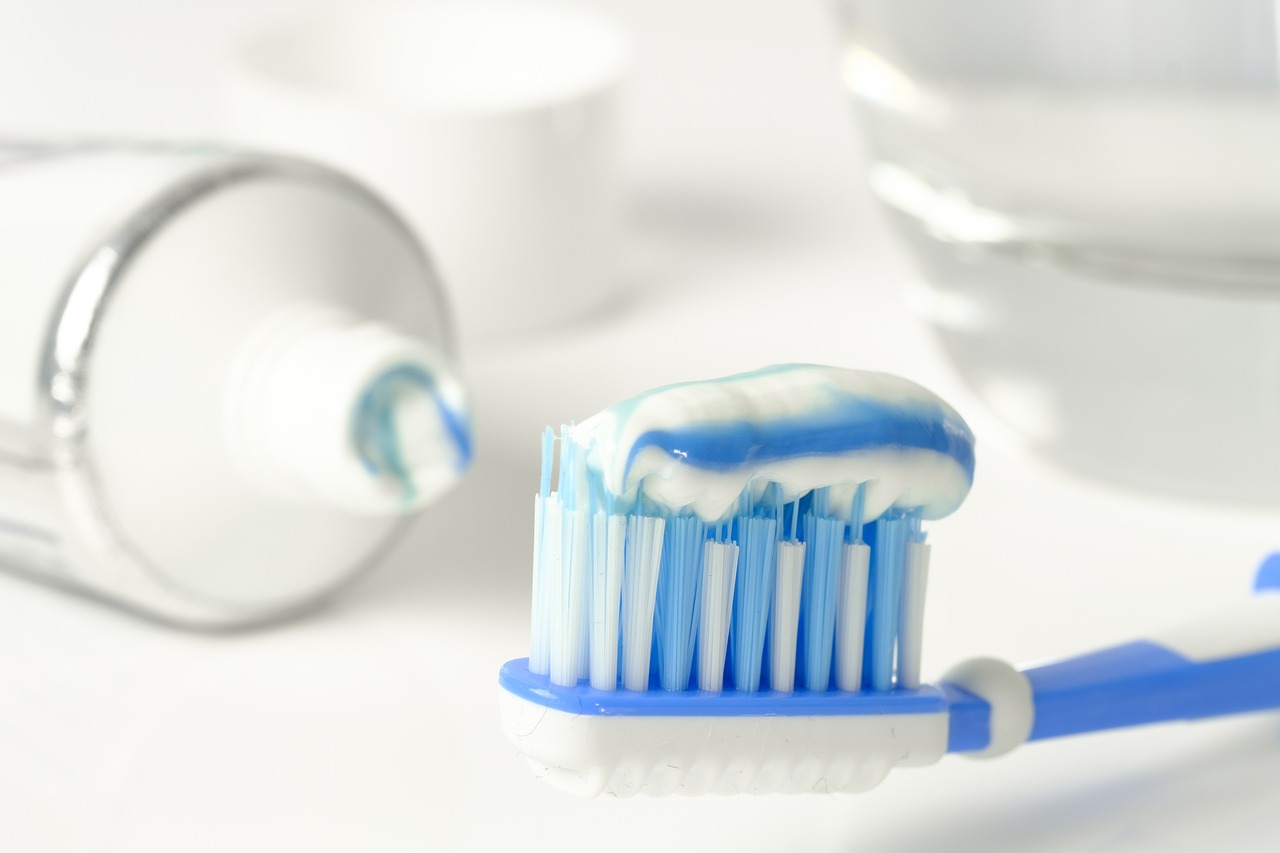
Regular Veterinary Dental Check-Ups
When it comes to keeping your senior pet's teeth and gums in tip-top shape, are absolutely essential. Just like we visit our dentists for routine cleanings and check-ups, our furry friends need the same level of care, especially as they age. These visits provide a valuable opportunity for veterinarians to assess your pet's oral health, catch any potential issues early, and provide you with tailored advice on maintaining their dental hygiene at home.
During a typical veterinary dental check-up, you can expect a thorough examination of your pet's mouth, including an inspection of their teeth, gums, and overall oral cavity. The veterinarian will look for signs of periodontal disease, tooth decay, and other common dental problems that can arise in senior pets. Additionally, they may recommend a professional cleaning if they notice significant tartar or plaque buildup. This cleaning is crucial because it helps to prevent more serious health issues that can arise from poor dental hygiene.
It's important to remember that many pets won't show obvious signs of dental pain or discomfort until the problem has progressed significantly. This is why regular check-ups are so vital. They can help you stay ahead of any dental issues before they escalate into something more severe. But what can you expect during these check-ups? Here’s a quick rundown:
| Check-Up Component | Description |
|---|---|
| Visual Examination | The vet will visually inspect your pet's mouth for any signs of dental disease. |
| Professional Cleaning | If necessary, your pet will receive a professional cleaning to remove plaque and tartar. |
| Oral Health Advice | The vet will provide guidance on home dental care practices tailored to your pet's needs. |
After the check-up, the veterinarian will discuss their findings with you and may suggest a tailored dental care plan that includes regular brushing, the use of dental chews, or specific dietary recommendations. This personalized approach ensures that your senior pet receives the best possible care, allowing them to maintain a healthy mouth as they age. Remember, keeping your pet's teeth clean is not just about preventing bad breath; it’s about enhancing their overall quality of life.
So, don’t wait until you notice a problem. Make those dental check-ups a regular part of your senior pet's health care routine. Your furry friend will thank you for it with wagging tails and happy purrs!
- How often should I take my senior pet for dental check-ups? It's generally recommended to have a dental check-up at least once a year, but your veterinarian may suggest more frequent visits based on your pet's specific needs.
- What signs indicate my pet may need a dental check-up? Look for signs such as bad breath, difficulty eating, swollen gums, or changes in behavior like decreased playfulness.
- Are dental cleanings safe for senior pets? Yes, professional dental cleanings are safe for senior pets, especially when performed by a qualified veterinarian who understands the specific health concerns of older animals.
What to Expect During a Check-Up
This article provides essential tips to help pet owners ensure their senior pets maintain optimal oral hygiene, promoting overall health and well-being as they age.
Understanding why oral hygiene is crucial for senior pets can help prevent serious health issues, such as dental disease and systemic infections, leading to a happier, healthier life.
Senior pets are particularly prone to dental issues like periodontal disease, tooth decay, and gum infections. Recognizing these problems early can help manage their health effectively.
Identifying the signs of dental disease in senior pets, such as bad breath, difficulty eating, or swollen gums, is vital for timely intervention and treatment.
Changes in behavior, like reluctance to play or eat, can indicate dental discomfort. Observing these changes can help owners act quickly to address potential issues.
Physical symptoms, including drooling or pawing at the mouth, can signal dental problems in senior pets, warranting immediate veterinary attention.
Implementing preventive care strategies, such as regular dental check-ups and professional cleanings, can significantly reduce the risk of dental diseases in senior pets.
Practicing effective home dental care techniques, including brushing and dental treats, can help maintain your senior pet's oral hygiene between veterinary visits.
Brushing your senior pet's teeth regularly is one of the most effective ways to prevent dental issues and maintain fresh breath, ensuring their comfort and health.
Providing dental chews and treats designed to promote oral health can be a fun and effective way to aid in your senior pet's dental care routine.
Scheduling regular veterinary dental check-ups is essential for monitoring your senior pet's oral health and addressing any emerging issues before they become severe.
When you take your senior pet for a dental check-up, it’s important to know what to expect. The process usually begins with a thorough examination of your pet's mouth. Your veterinarian will look for signs of plaque buildup, gum disease, and any loose or damaged teeth. This examination is crucial because early detection can prevent more serious issues down the line.
After the initial examination, your vet may recommend a professional cleaning. This involves scaling to remove tartar and polishing the teeth to prevent further plaque buildup. Depending on your pet's dental health, your vet might also suggest additional treatments, such as fluoride applications or dental sealants, to enhance oral health.
Throughout the check-up, your veterinarian will provide you with tailored advice on maintaining your pet's oral hygiene at home. This could include recommendations for specific dental products, tips for effective brushing techniques, and dietary suggestions to support oral health.
To give you a clearer picture, here’s a quick overview of what happens during a typical veterinary dental check-up:
| Step | Description |
|---|---|
| Initial Examination | Assessment of the mouth, teeth, and gums for any signs of dental disease. |
| Professional Cleaning | Scaling and polishing to remove tartar and prevent plaque. |
| Recommendations | Personalized advice on home dental care and products. |
Being prepared for your pet’s dental check-up can make the experience smoother and more beneficial for both you and your furry friend. Remember, regular dental care is a vital part of your senior pet’s overall health!
- How often should I take my senior pet for dental check-ups? It’s recommended to schedule dental check-ups at least once a year, or more frequently if your veterinarian advises it.
- Can I brush my pet's teeth daily? Yes, daily brushing is ideal, but even a few times a week can make a significant difference in maintaining oral hygiene.
- What are some signs my pet may need dental care? Look for bad breath, difficulty eating, or any changes in behavior that suggest discomfort.
Professional Cleanings
This article provides essential tips to help pet owners ensure their senior pets maintain optimal oral hygiene, promoting overall health and well-being as they age.
Understanding why oral hygiene is crucial for senior pets can help prevent serious health issues, such as dental disease and systemic infections, leading to a happier, healthier life.
Senior pets are particularly prone to dental issues like periodontal disease, tooth decay, and gum infections. Recognizing these problems early can help manage their health effectively.
Identifying the signs of dental disease in senior pets, such as bad breath, difficulty eating, or swollen gums, is vital for timely intervention and treatment.
Changes in behavior, like reluctance to play or eat, can indicate dental discomfort. Observing these changes can help owners act quickly to address potential issues.
Physical symptoms, including drooling or pawing at the mouth, can signal dental problems in senior pets, warranting immediate veterinary attention.
Implementing preventive care strategies, such as regular dental check-ups and professional cleanings, can significantly reduce the risk of dental diseases in senior pets.
Practicing effective home dental care techniques, including brushing and dental treats, can help maintain your senior pet's oral hygiene between veterinary visits.
Brushing your senior pet's teeth regularly is one of the most effective ways to prevent dental issues and maintain fresh breath, ensuring their comfort and health.
Providing dental chews and treats designed to promote oral health can be a fun and effective way to aid in your senior pet's dental care routine.
Scheduling regular veterinary dental check-ups is essential for monitoring your senior pet's oral health and addressing any emerging issues before they become severe.
During a veterinary dental check-up, expect a thorough examination, potential cleaning, and advice on maintaining your senior pet's oral hygiene at home.
When it comes to your senior pet’s dental health, are not just a luxury; they are a necessity. Imagine a car that hasn’t had its oil changed in years—eventually, it’ll start to sputter and fail. The same goes for your pet’s teeth! Regular professional cleanings help to eliminate the stubborn tartar and plaque that brushing at home might miss. During these appointments, veterinarians will use specialized tools to thoroughly clean your pet’s teeth, reaching areas that are often neglected.
These cleanings are typically performed under anesthesia, which allows the veterinarian to conduct a comprehensive examination of the mouth without causing your pet any distress. This is crucial because it ensures that any underlying issues—like hidden cavities or severe gum disease—are identified early. After the cleaning, your veterinarian will provide guidance on how to maintain your pet’s oral hygiene at home, including recommendations for products and techniques that can help keep their teeth in tip-top shape.
But don’t just take our word for it! Here’s a quick look at the benefits of professional cleanings:
| Benefit | Description |
|---|---|
| Thorough Cleaning | Removes tartar and plaque buildup that brushing may miss. |
| Early Detection | Identifies potential dental issues before they escalate. |
| Expert Care | Performed by trained professionals using specialized equipment. |
| Improved Overall Health | Prevents systemic infections that can arise from dental disease. |
In conclusion, scheduling regular professional cleanings is a vital step in your senior pet’s overall health plan. It’s an investment that pays off in the long run, ensuring your furry friend remains happy and healthy as they age.
- How often should I schedule dental cleanings for my senior pet? It’s generally recommended to have professional cleanings at least once a year, but your veterinarian may suggest more frequent visits based on your pet’s specific needs.
- Is anesthesia safe for my senior pet during dental cleanings? Yes, while there are always risks associated with anesthesia, veterinarians take precautions to ensure your pet’s safety, especially in senior animals.
- Can I perform dental cleanings at home? While you can maintain your pet’s oral hygiene at home through brushing and dental treats, professional cleanings are essential for comprehensive care.
Frequently Asked Questions
- Why is oral hygiene important for senior pets?
Oral hygiene is crucial for senior pets because it helps prevent serious health issues like dental disease and systemic infections. Just like us, pets can suffer from painful dental problems that affect their overall well-being. Maintaining good oral hygiene can lead to a happier, healthier life for your furry friend.
- What are common dental problems in senior pets?
Senior pets are prone to various dental issues, including periodontal disease, tooth decay, and gum infections. These problems can lead to discomfort and more severe health complications if not addressed promptly. Regular dental check-ups and at-home care can help manage these risks effectively.
- What signs indicate my senior pet might have dental disease?
Watch for signs like bad breath, difficulty eating, swollen gums, or changes in behavior such as reluctance to play. If your pet is drooling excessively or pawing at their mouth, these could be signs of dental discomfort. Early detection is key to ensuring they receive the care they need.
- How can I maintain my senior pet's oral hygiene at home?
You can maintain your senior pet's oral hygiene by brushing their teeth regularly, using dental chews, and providing treats designed to promote oral health. Establishing a routine can make dental care easier and more enjoyable for both you and your pet.
- What can I expect during a veterinary dental check-up?
During a veterinary dental check-up, your pet will undergo a thorough examination of their teeth and gums. The vet may perform a cleaning to remove tartar and plaque build-up and provide advice on maintaining your pet's oral hygiene at home. It's a great opportunity to address any concerns you might have!
- Are professional dental cleanings necessary for my senior pet?
Yes, professional dental cleanings are essential for removing tartar and plaque that regular brushing may miss. These cleanings help ensure your senior pet's teeth and gums remain healthy, reducing the risk of serious dental issues down the line.


